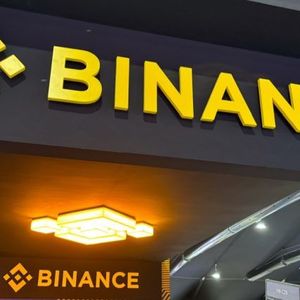In a truly revolutionary move that has sent ripples through both the traditional finance and cryptocurrency worlds, Nasdaq-listed Janover (JNVR) has announced its adoption of Solana (SOL) as its primary treasury reserve asset. This bold decision, reported by CNBC, signals a significant shift in corporate strategy and underscores the growing acceptance of digital assets by publicly traded companies. But what exactly does this mean, and why is it such a big deal for the future of finance and the crypto ecosystem? Why Solana as the Treasury Reserve Asset? The decision to anchor Janover’s treasury to Solana , a blockchain known for its speed and scalability, is far from arbitrary. It points towards a strategic alignment with the future of finance, which increasingly looks decentralized and crypto-centric. Let’s break down why Solana might be the perfect fit for this groundbreaking initiative: Speed and Scalability: Solana boasts incredibly fast transaction speeds and high throughput, making it ideal for handling the demands of a corporate treasury. Unlike older blockchains, Solana can process thousands of transactions per second, ensuring efficiency and agility. Low Transaction Costs: Another compelling advantage of Solana is its remarkably low transaction fees. This is crucial for a company managing its finances, as it minimizes overhead and maximizes the value of their holdings. Growing DeFi Ecosystem: Solana has a vibrant and rapidly expanding DeFi (Decentralized Finance) ecosystem. By holding Solana, Janover positions itself to potentially participate in and benefit from this burgeoning sector, opening doors to yield generation, staking, and other innovative financial instruments. Strong Community and Development: Solana benefits from a robust and active developer community. This continuous development and innovation ensure that the blockchain remains at the forefront of technological advancements, reducing the risk of obsolescence. Visionary Leadership: The takeover of Janover by crypto industry veterans, including former Kraken staff, suggests a deep understanding of the crypto landscape and a long-term vision for leveraging blockchain technology. Their expertise likely played a crucial role in selecting Solana. Rebranding to DeFi Development Corp: A Clear Signal of Intent? Janover’s planned rebranding to DeFi Development Corp is not just a cosmetic change; it’s a powerful declaration of their future direction. This name explicitly states their commitment to the world of Decentralized Finance. But what does this rebranding truly signify? Focus on DeFi: The new name leaves no doubt about the company’s primary focus. DeFi will be at the heart of their operations, suggesting they intend to build, invest in, or facilitate projects within this space. Attracting Crypto Talent and Investors: Rebranding as DeFi Development Corp is likely aimed at attracting talent and investors who are passionate about and knowledgeable in the crypto and DeFi sectors. It sends a clear message: “We are serious about DeFi.” Strategic Repositioning: For a Nasdaq-listed company to rebrand itself entirely around DeFi represents a dramatic strategic repositioning. It suggests a belief that DeFi is not just a niche market but the future of finance, and they want to be at the forefront. Potential Product and Service Development: The rebranding hints at the development of new products and services centered around DeFi. This could include building DeFi platforms, offering DeFi investment vehicles, or providing infrastructure for the DeFi ecosystem. Embracing Innovation: By adopting the DeFi moniker, Janover is signaling its embrace of innovation and its willingness to disrupt traditional financial models. This can be incredibly appealing to a market that is constantly seeking the next big thing. The Significance of a Crypto Treasury Reserve Strategy Adopting Treasury Reserve assets in cryptocurrency, especially Solana, is still a relatively novel concept for publicly traded companies. Traditionally, corporate treasuries are held in fiat currencies and low-risk assets. So, why would Janover choose to deviate from this norm and embrace a crypto treasury? Benefit Description Potential for Higher Returns Cryptocurrencies, while volatile, offer the potential for significantly higher returns compared to traditional treasury assets, especially in a low-interest rate environment. Diversification Holding Solana as a treasury asset diversifies Janover’s holdings beyond traditional markets, potentially reducing overall portfolio risk in the long run. Inflation Hedge Some view cryptocurrencies as a hedge against inflation, as their supply is often limited or algorithmically controlled, unlike fiat currencies which can be subject to inflationary pressures. Alignment with Business Strategy For a company rebranding to DeFi Development Corp, holding crypto as a treasury reserve is a natural alignment with its core business and future direction. Brand Image and Innovation Being an early adopter of crypto as a treasury reserve can enhance Janover’s brand image as innovative and forward-thinking, attracting attention from investors and customers alike. However, it’s crucial to acknowledge the challenges associated with a crypto treasury reserve: Challenge Description Volatility Cryptocurrencies are known for their price volatility. Holding Solana as a treasury asset exposes Janover to potential significant fluctuations in asset value. Regulatory Uncertainty The regulatory landscape for cryptocurrencies is still evolving and varies across jurisdictions. This uncertainty can pose risks and compliance challenges. Security Risks Storing and managing cryptocurrency holdings securely requires robust security measures to protect against theft and hacking. Accounting and Tax Complexity Accounting for and taxing cryptocurrency holdings can be complex and requires specialized expertise. Market Perception While innovative, the move to a crypto treasury might be viewed with skepticism by some traditional investors who are unfamiliar with or wary of cryptocurrencies. Crypto Rebranding: More Than Just a Name Change? The concept of Crypto Rebranding is becoming increasingly common as companies in the traditional space seek to align themselves with the burgeoning digital asset market. But is it merely a marketing gimmick, or does it represent a deeper strategic shift? In Janover’s case, it appears to be the latter. Signaling a Strategic Pivot: Rebranding to DeFi Development Corp is a clear signal that Janover is not just dabbling in crypto; it’s making a fundamental strategic pivot towards becoming a core player in the DeFi space. Attracting a New Audience: The rebranding is designed to resonate with a new audience – the crypto community, DeFi enthusiasts, and investors who are looking for exposure to digital assets through publicly traded companies. Creating a Cohesive Brand Identity: The new brand identity is designed to be cohesive with the company’s new focus on DeFi. It’s about creating a brand that is synonymous with innovation, decentralization, and the future of finance. Investor Confidence (Potentially): For some investors, a dedicated focus on DeFi and crypto might increase confidence in the company’s future prospects, especially if they believe in the long-term potential of digital assets. Cultural Shift Within the Company: A rebrand often accompanies a cultural shift within the company. It can be a catalyst for adopting new values, embracing innovation, and fostering a crypto-native mindset. A Nasdaq Listed Company Embracing Crypto: Is This the Start of a Trend? Janover, a Nasdaq Listed Company , taking such a decisive step into the crypto world is a landmark moment. It begs the question: is this an isolated incident, or are we witnessing the beginning of a broader trend where mainstream, publicly traded companies begin to integrate cryptocurrencies into their operations and balance sheets? Validation of Crypto as an Asset Class: When a Nasdaq-listed company adopts crypto as a treasury reserve, it lends further legitimacy and validation to cryptocurrencies as a legitimate asset class. Setting a Precedent: Janover’s move could set a precedent for other publicly traded companies to explore similar strategies, particularly those looking to innovate and tap into new growth markets. Increased Institutional Adoption: This could be a significant step towards increased institutional adoption of cryptocurrencies. As more companies see the potential benefits, we might see a snowball effect. Bridging Traditional and Crypto Finance: This move helps bridge the gap between traditional finance and the crypto world. It demonstrates that these two worlds are not mutually exclusive but can be integrated and mutually beneficial. Catalyst for Regulatory Clarity: As more publicly traded companies engage with crypto, it might also accelerate the push for clearer and more consistent regulatory frameworks for digital assets, which is crucial for wider adoption. Conclusion: A Bold Leap into the Future Janover’s adoption of Solana as its treasury reserve asset and its rebranding to DeFi Development Corp is a bold and potentially transformative move. It signifies a profound belief in the future of decentralized finance and the role of cryptocurrencies in the global economy. While challenges and uncertainties remain, this pioneering step by a Nasdaq-listed company could well be a watershed moment, paving the way for wider corporate adoption of crypto and accelerating the convergence of traditional and decentralized finance. Keep a close watch on JNVR – they might just be writing the next chapter in financial history. To learn more about the latest DeFi trends, explore our article on key developments shaping DeFi market growth.
 Schiff Agrees with Saylor’s Bitcoin Take
Schiff Agrees with Saylor’s Bitcoin Take










